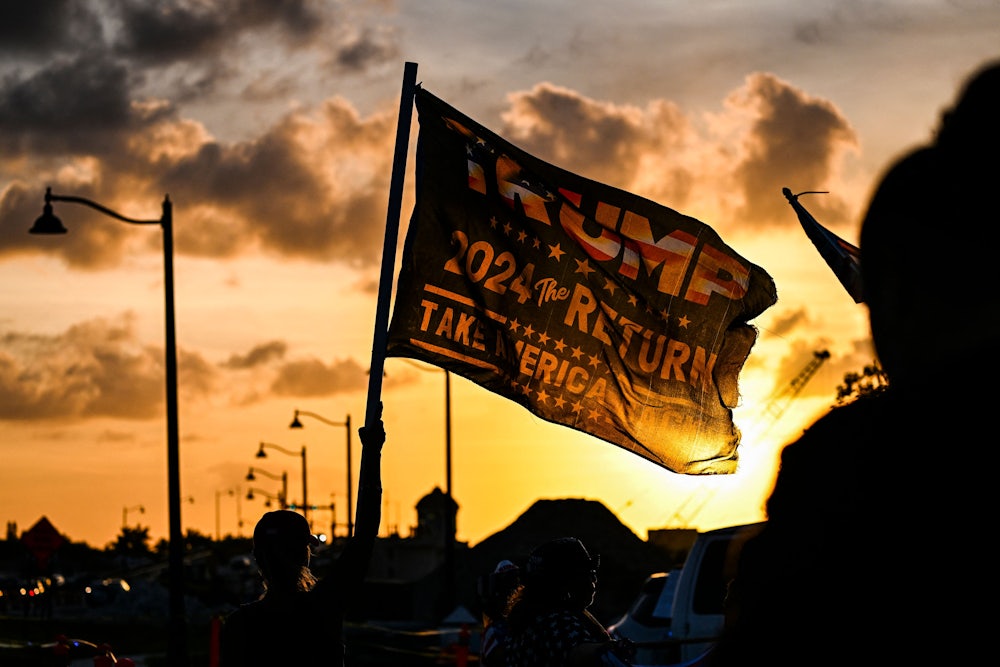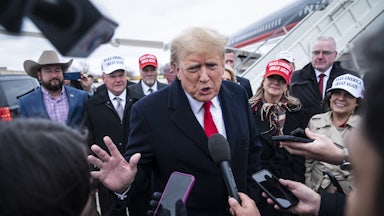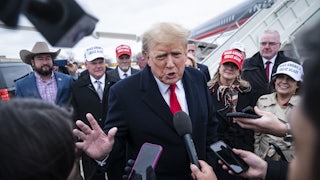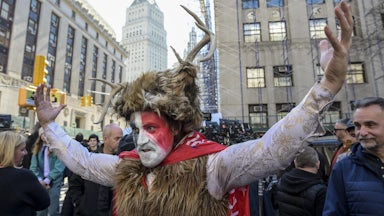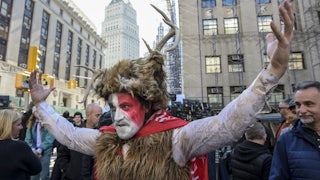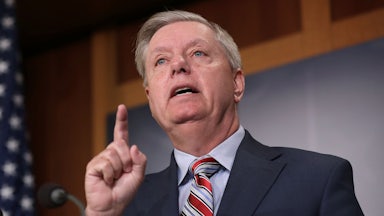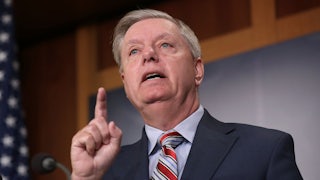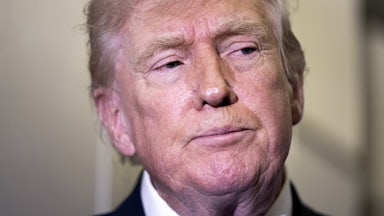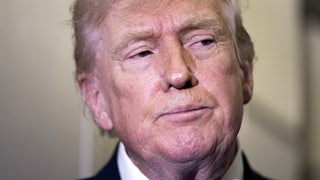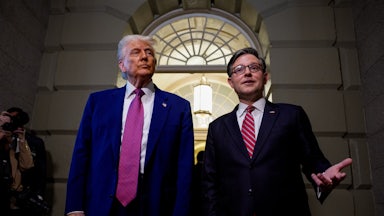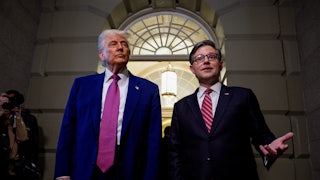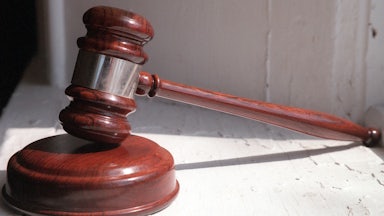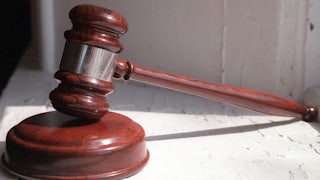What happened Thursday had been anxiously anticipated. It was ultimately disappointing for the former president, who expected a strong show of support from followers who backed him when he rejected the results of a democratic election that cast him from office after four tumultuous years. Although these followers previously staged a revolt in the nation’s capital in his name, few turned out this week when he hoped for a powerful demonstration of continued political force.
I’m talking about former Brazilian President Jair Bolsonaro, but these sentences could just as easily describe the week Donald Trump had. Both former heads of state had a lively few days, raising two key questions: First, are recent developments good for Trump/Bolsonaro and their respective political projects? Second, by indicting Trump, is the United States becoming more like, say, Brazil (“third-world” justice, as Trump’s sons cried)—or is the deep ideological polarization of Brazilian politics today actually a sign of the largest Latin American nation becoming more like the U.S.?
Jair Bolsonaro has been sulking in self-imposed exile in Florida since December, following his electoral defeat by leftist president Luiz Inácio Lula da Silva. Given that Bolsonaro never conceded the election and his supporters attacked government offices on January 8, many worried Bolsonaro’s return might spark civil unrest and dominate the news of Latin American’s largest nation. Instead, Bolsonaro’s return didn’t even count among the top trending topics on Twitter, suggesting the former president is losing his social media edge. Major newspapers hardly noted the news, focusing instead on the presentation of the Lula government’s new fiscal framework. On top of all that, of course, in a remarkable coincidence, Bolsonaro’s deflating return to Brazil coincided with Donald Trump’s indictment on over 30 counts related to business fraud, inspiring a similarly lackluster “maybe two dozen supporters” to protest outside Trump’s Florida residence, according to the Orlando NBC affiliate.
During their overlapping years in office, Bolsonaro openly embraced Trump. The leaders, I wrote for The New Republic in 2019, “mostly agree on the problems facing the world and how to solve them.” Like his American idol, Bolsonaro has faced myriad legal challenges since leaving office, most recently a scandal involving jewelry illegally gifted to then-first lady Michelle Bolsonaro by the government of Saudi Arabia. He has predictably dismissed his legal troubles as partisan sniping. Unlike Trump, however, it is not entirely clear that Bolsonaro is aiming for a comeback per se. Ahead of his return, he left his political future open, telling CNN Brasil: “I will not lead any opposition. I will participate with my party, as an experienced person, [with] 28 years in Congress, four as president, two as city councilman and 15 in the Army, to collaborate with whatever they wish.” Bolsonaro did not foreclose on a future run, but he has been much less eager to jump back into the fray than Trump.
The apparent gap in their political chances marks the first key difference between Trump and Bolsonaro. Many Trump supporters see the very fact that Trump is running competitively for president right now as the real reason for Thursday’s reported indictment. Some speculated that Bolsonaro’s return to Brazil and Trump’s indictment would actually bolster their political aspirations. Brian Winter, editor in chief of Americas Quarterly, for example, tweeted: “A grand jury votes to indict Donald Trump on same day Jair Bolsonaro returns to Brazil. A good day, politically speaking, for both of them.” A Republican donor told The Hill on Friday that “Trump will make great use of this. It will give him a big fundraising boost and lots of free media.” (TNR’s Alex Shephard has convincingly rebutted this argument that Trump will benefit from the indictment, with reasoning that I think can be applied to Bolsonaro as well.)
In Brazil, Lula beat Bolsonaro by just over two million votes out of a total population of 216 million, a close race that some interpreted as a surprising show of strength for Bolsonaro. However, considering that no sitting Brazilian president had ever lost reelection since the Constitution first allowed an incumbent to seek a second term in 1997 and that Bolsonaro unabashedly used the vast powers of incumbency to further his campaign, Lula’s victory was no small feat. Lula remains broadly popular despite some rocky moments in his first few months: 71 percent of respondents in a recent poll rated his administration as average, good, or great. If Bolsonaro is considering a comeback, this week was not an auspicious start, particularly compared with the reception Bolsonaro used to get at airports when he first ran for president. Anything is possible, but it is far from clear that Bolsonaro has a path back to the presidency whether or not he faces criminal charges before the 2026 presidential campaign.
Trump’s indictment, of course, is noteworthy for how unprecedented it is in the U.S. context. And that has led to an interesting debate: Some Republicans have denounced the indictment—handed down, it’s worth remembering, by a grand jury made up of private citizens—as a kind of politically motivated revenge, evidence of the nation’s democracy being relegated to “third-world” status. They call this a political prosecution, not justice—the kind of stuff, they insist, that happens in distant “banana republics,” not the solid US of A. Even in disagreement, former George W. Bush speechwriter and anti-Trump conservative David Frum accepted the premise: “Point of clarification, it’s a banana republic when the president of the state commits crimes and DOESN’T face justice.”
Accountability for chief executives can certainly be weaponized in service of a political agenda, as Brazil’s history shows: Lula spent 580 days in prison on corruption charges that were thrown out once it became clear that the presiding judge was colluding with a prosecution well aware of the fragility of its case. But the American right’s panic about becoming a “banana republic” suggests a more specific anxiety: It speaks to the disruption of the abiding U.S. impulse to overlook or absolve ourselves from far-flung and inconvenient facts, even—or especially—when the American government is involved.
The distance between reality and the average American’s perception of their country’s foreign policy has existed for a long time. Historically, to an astonishing degree, the far-off instability for which “banana republic” is shorthand in U.S. political discourse has been the result of furtive decisions by American elected officials. A term like “banana republic,” typically applied to political events in poorer countries, operates in U.S. political discourse to exempt Americans from any responsibility for political chaos unfolding somewhere far away in their name. The open grifting of the Trump administration, the January 6 insurrection, and now Trump’s indictment have complicated the narrative implied by this term, highlighting institutional chaos at home.
But there are no banana republics in nature. They don’t just exist out there, isolated from the forces of global capital and U.S. hegemony. What exist are fragile democracies, deliberately susceptible to the whims of those in power who put their own interests above the needs of the majority. This is what Trump and Bolsonaro have always been about.
